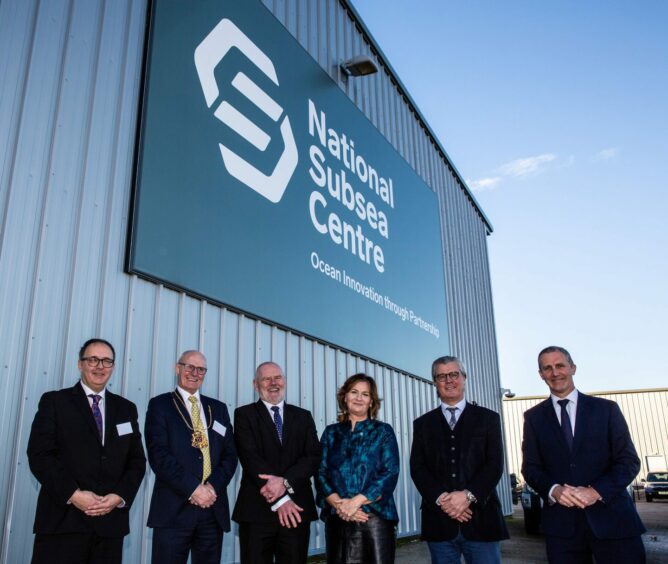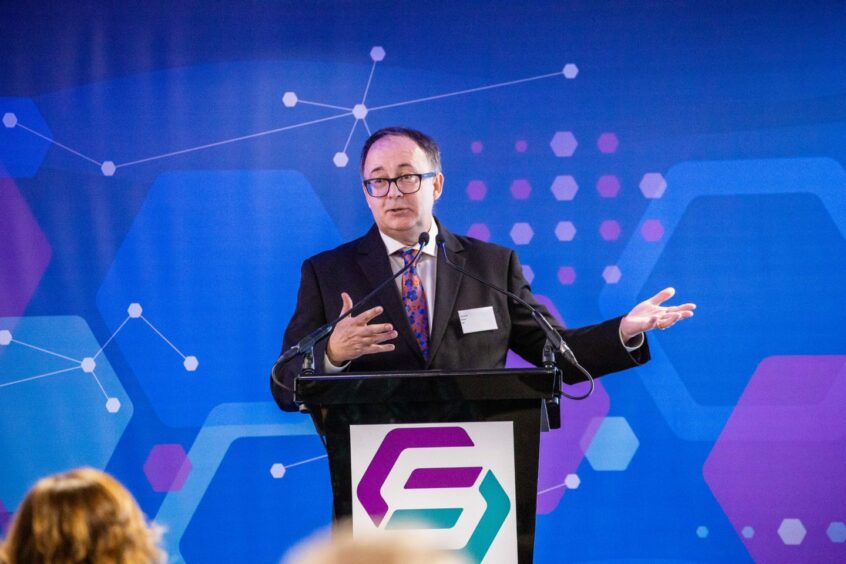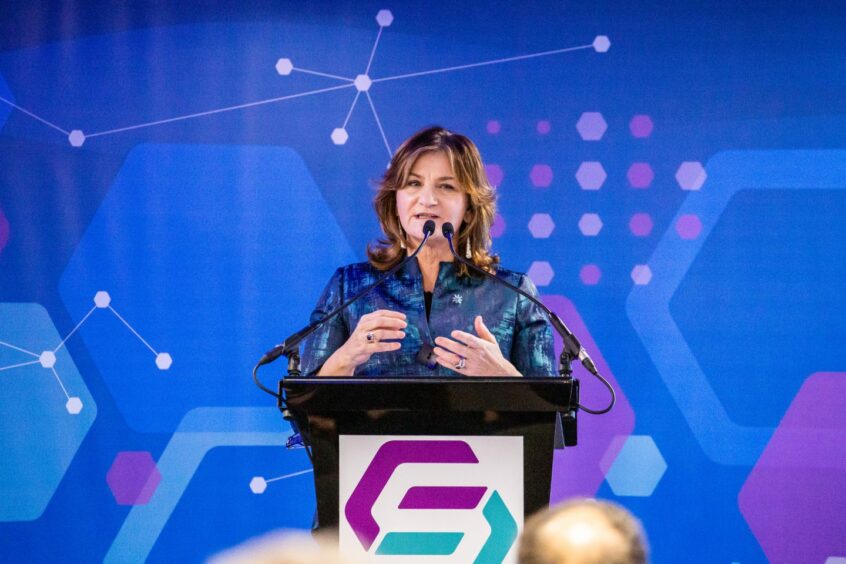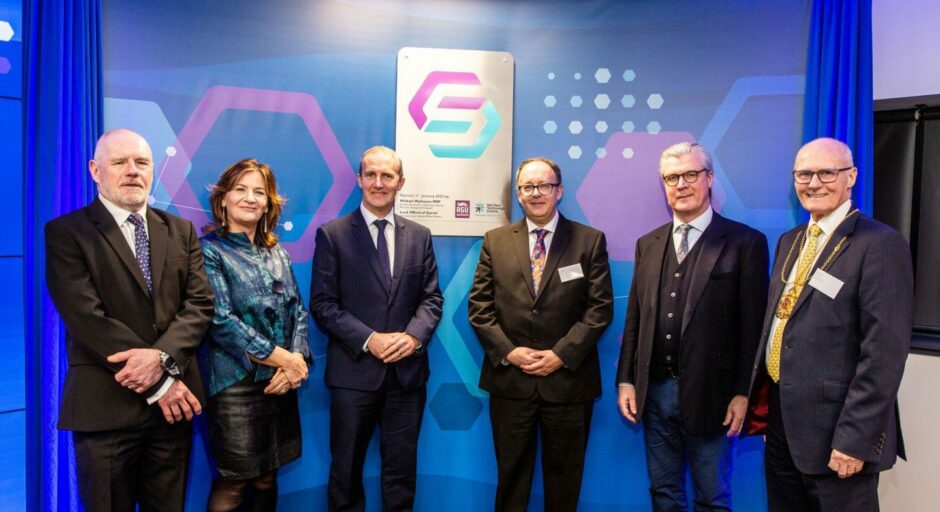 © Supplied by NSC
© Supplied by NSC The multi-million-pound National Subsea Centre opened its doors this year following a turbulent development process hampered by the COVID-19 pandemic.
The Dyce-based facility brought in collaboration between Robert Gordon University and Net Zero Technology Centre was launched by Scottish Government energy secretary Michael Matheson and UK Scotland Office minister Malcolm Offord.
The National Subsea Centre (NSC) has hit the ground running with its work on the ‘SeaSense’ project which will develop technology that allows remotely operated vehicles to work in harsh environments with low visibility.
NSC’s purpose is to ‘ accelerate the energy transition’
Energy Voice spoke with the facility’s director, Professor John McCall and Colette Cohen, chief executive of the Net Zero Technology Centre (NZTC).
Prof. McCall said: “The purpose of the national Subsea Centre is to accelerate the energy transition.
“What we do is bring smart technologies like AI and digital to bear the technical and social challenges that are posed by the transition to net zero particularly relating to subsea marine areas.”
According to the Robert Gordon University professor, a major benefit of AI is the rate at which the technology progresses once it receives investment.
“A big advantage of AI and digital is that the faster you go, the more benefit that you get and you continue to accelerate, so we’ll be developing new technologies,” McCall said.
He continued: “That can be very investable.”
Collette Cohen said that her firm can work as a bridge between the research being carried out at the NSC and the energy industry.
She said: “We work very closely with industry and we’re very focused on the deployment of technology in the Net Zero Technology Centre, so we bring that angle to what’s maybe from our view more of an academic.
“That combination of education, academia and industry LED research is why we’ve come together.”
What is the NSC working on?
One of the technologies that the NZTC is collaborating on is the aforementioned ‘SeaSense’ project, professor McCall explained what this technology is “strong critical mass of researchers “aims to do and how it will help industry.
“We have a partnership with the University of Strathclyde and they’re bringing in their experience in space robotics, combining it with our experience in underwater sensing, we’re looking at developing a generation of robots that can do haptic sensing underwater”
The professor says that this means the robots can work by “feel rather than just by vision”.
The Robert Gordon lecturer said that work on the “exciting project” has been carried out for 27 months and he is “looking forward to seeing how it goes.”
This is just one of the many projects that Robert Gordon University and NZTC are working on through the use of the new centre.
Projects such as these are making Aberdeen a more attractive place for people to come and study. Ms Cohen said: “This is also going to support local education and PhD’s for people who are existing in industry who want to develop themselves for the future new energy industries.”
McCall added: “Teams based on natural solutions and colonies and so on, I think that’s attractive to people who want to study.
“And the clean industries that are being developed here, young people want to be involved in that and they want to help the transition, so I think it’s hugely attractive.”
Industry Investment
McCall says that the work being carried out in the new Dyce facility provides a “huge opportunity for investment” and his team is “keen to have that investment based here in Aberdeen and allow the world-beating supply chain we have to translate into a clean energy supply chain.”
Cohen is keen to see this industry interaction with the new centre, as she explained: “We’re brining the supply chain angle and the partnerships and also just ensuring that the focus of this is around deployable technology, for the North Sea particularly but then ultimately exportable as well.”
The NZTC boss also explained the importance of accelerating the transition to benefit the north-east of Scotland.
“The faster we can move into that space, the more jobs there will be for this region and because if we wait too long, then other areas will have placed their own manufacturing capabilities and started developing their own technologies,” she said.
“If we wait, we’re gonna buy them from other places.
“The subsea industry, in particular, has like a £20 billion export market as well as an £8 billion local market, and the potential for 180,000 jobs going forward, so I think having centres like this that will help accelerate that and help us realise that opportunity.”
NSC director McCAll added that his facility is “a resource for people to use” and he wants people to “steer” the research being done.
At the end of the conversation, he said: “We’re industry-led, invest in us to grow the resource we need to make the energy transition.”



